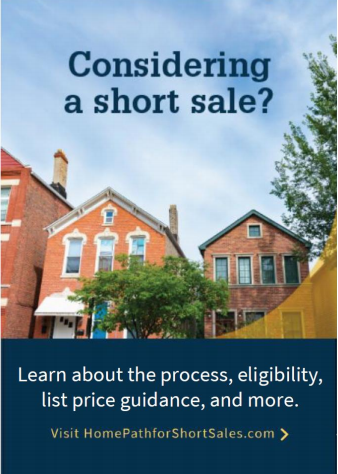
You can improve your odds of success by doing many things, regardless if you are looking to become or already are a real-estate agent. Successful real-estate agents are not only successful because they have plenty of money and great connections.
Creating Your Brand
Successful real estate agents should be able market themselves effectively online and through social media. To do this, agents should ensure that their websites are up to date and consistent. Also, they should post regularly on their various platforms. This allows potential clients to contact them as well as establishes the expertise of their real estate team.
Be Flexible in Your Purpose
The ability to set realistic goals is a key trait of successful real-estate agents. They set realistic goals, keep track of their progress and adjust their strategy accordingly.

Always be honest and consistent with clients
Honesty, transparency and integrity are key to success as a real-estate agent. Your clients will feel more confident in you if you are honest about your marketing and listing strategies.
Have a Passion for the Industry
It can be difficult to achieve success in the real estate industry. You should have a genuine passion for the industry and be prepared to stay on top of the latest trends.
You should have a keen eye for detail
You'll have to know the finer details of real estate as a realtor. This means you'll have to know everything about housing prices, contract reviews, negotiating offers, and the finer aspects of legal documentation.
Be Patient and Listening
As an agent, it's your job to help clients find their dream home or sell their current home. You must be patient and understandable because the process is stressful and emotional.

Be a Great Communicator
Communication is vital in the realty industry to create rapport with your customers. Don't hesitate to ask a lot of questions, use eye contact and actively listen. You will become a more effective communicator, and your chances to build lasting relationships with clients will increase.
Have a Strong Network
As an agent, you will work with a lot of people. Therefore, it is essential that you develop strong relationships. It will also make it easier for you to receive referrals.
Don't forget to always thank your customers
Successful real estate agents will always be busy, so treat every client like they're the only ones you have. This could include making late night calls, working long days and doing everything possible to ensure the client's satisfaction.
FAQ
What should I look out for in a mortgage broker
Mortgage brokers help people who may not be eligible for traditional mortgages. They look through different lenders to find the best deal. Some brokers charge a fee for this service. Some brokers offer services for free.
Do I need a mortgage broker?
A mortgage broker is a good choice if you're looking for a low rate. Brokers work with multiple lenders and negotiate deals on your behalf. Some brokers do take a commission from lenders. Before signing up, you should verify all fees associated with the broker.
How can I tell if my house has value?
If your asking price is too low, it may be because you aren't pricing your home correctly. A home that is priced well below its market value may not attract enough buyers. Get our free Home Value Report and learn more about the market.
How long does it take for my house to be sold?
It depends on many factors, such as the state of your home, how many similar homes are being sold, how much demand there is for your particular area, local housing market conditions and more. It may take 7 days to 90 or more depending on these factors.
Statistics
- Based on your credit scores and other financial details, your lender offers you a 3.5% interest rate on loan. (investopedia.com)
- This means that all of your housing-related expenses each month do not exceed 43% of your monthly income. (fortunebuilders.com)
- The FHA sets its desirable debt-to-income ratio at 43%. (fortunebuilders.com)
- When it came to buying a home in 2015, experts predicted that mortgage rates would surpass five percent, yet interest rates remained below four percent. (fortunebuilders.com)
- Over the past year, mortgage rates have hovered between 3.9 and 4.5 percent—a less significant increase. (fortunebuilders.com)
External Links
How To
How to Manage a Property Rental
You can rent out your home to make extra cash, but you need to be careful. We will show you how to manage a rental home, and what you should consider before you rent it.
Here's how to rent your home.
-
What should I consider first? Take a look at your financial situation before you decide whether you want to rent your house. If you are in debt, such as mortgage or credit card payments, it may be difficult to pay another person to live in your home while on vacation. Also, you should review your budget to see if there is enough money to pay your monthly expenses (rent and utilities, insurance, etc. It might not be worth the effort.
-
How much is it to rent my home? Many factors go into calculating the amount you could charge for letting your home. These include factors such as location, size, condition, and season. Remember that prices can vary depending on where your live so you shouldn't expect to receive the same rate anywhere. The average market price for renting a one-bedroom flat in London is PS1,400 per month, according to Rightmove. If you were to rent your entire house, this would mean that you would earn approximately PS2,800 per year. Although this is quite a high income, you can probably make a lot more if you rent out a smaller portion of your home.
-
Is this worth it? Although there are always risks involved in doing something new, if you can make extra money, why not? Be sure to fully understand what you are signing before you sign anything. Not only will you be spending more time away than your family, but you will also have to maintain the property, pay for repairs and keep it clean. Before you sign up, make sure to thoroughly consider all of these points.
-
Is there any benefit? So now that you know how much it costs to rent out your home and you're confident that it's worth it, you'll need to think about the advantages. You have many options to rent your house: you can pay off debt, invest in vacations, save for rainy days, or simply relax from the hustle and bustle of your daily life. Whatever you choose, it's likely to be better than working every day. Renting could be a full-time career if you plan properly.
-
How do I find tenants Once you've made the decision that you want your property to be rented out, you must advertise it correctly. Start by listing online using websites like Zoopla and Rightmove. After potential tenants have contacted you, arrange an interview. This will enable you to evaluate their suitability and verify that they are financially stable enough for you to rent your home.
-
How can I make sure I'm covered? If you fear that your home will be left empty, you need to ensure your home is protected against theft, damage, or fire. You will need to insure the home through your landlord, or directly with an insurer. Your landlord will likely require you to add them on as additional insured. This is to ensure that your property is covered for any damages you cause. However, this doesn't apply if you're living abroad or if your landlord isn't registered with UK insurers. In these cases, you'll need an international insurer to register.
-
If you work outside of your home, it might seem like you don't have enough money to spend hours looking for tenants. However, it is important that you advertise your property in the best way possible. You should create a professional-looking website and post ads online, including in local newspapers and magazines. It is also necessary to create a complete application form and give references. Some prefer to do it all themselves. Others hire agents to help with the paperwork. Either way, you'll need to be prepared to answer questions during interviews.
-
What should I do after I have found my tenant? If you have a current lease in place you'll need inform your tenant about changes, such moving dates. If you don't have a lease, you can negotiate length of stay, deposit, or other details. While you might get paid when the tenancy is over, utilities are still a cost that must be paid.
-
How do you collect rent? When it comes to collecting the rent, you will need to confirm that the tenant has made their payments. You will need to remind your tenant of their obligations if they don't pay. You can deduct any outstanding payments from future rents before sending them a final bill. If you are having difficulty finding your tenant, you can always contact the police. If there is a breach of contract they won't usually evict the tenant, but they can issue an arrest warrant.
-
How can I avoid potential problems? It can be very lucrative to rent out your home, but it is important to protect yourself. Install smoke alarms, carbon monoxide detectors, and security cameras. Also, make sure you check with your neighbors to see if they allow you to leave your home unlocked at night. You also need adequate insurance. Do not let strangers in your home, even though they may be moving in next to you.